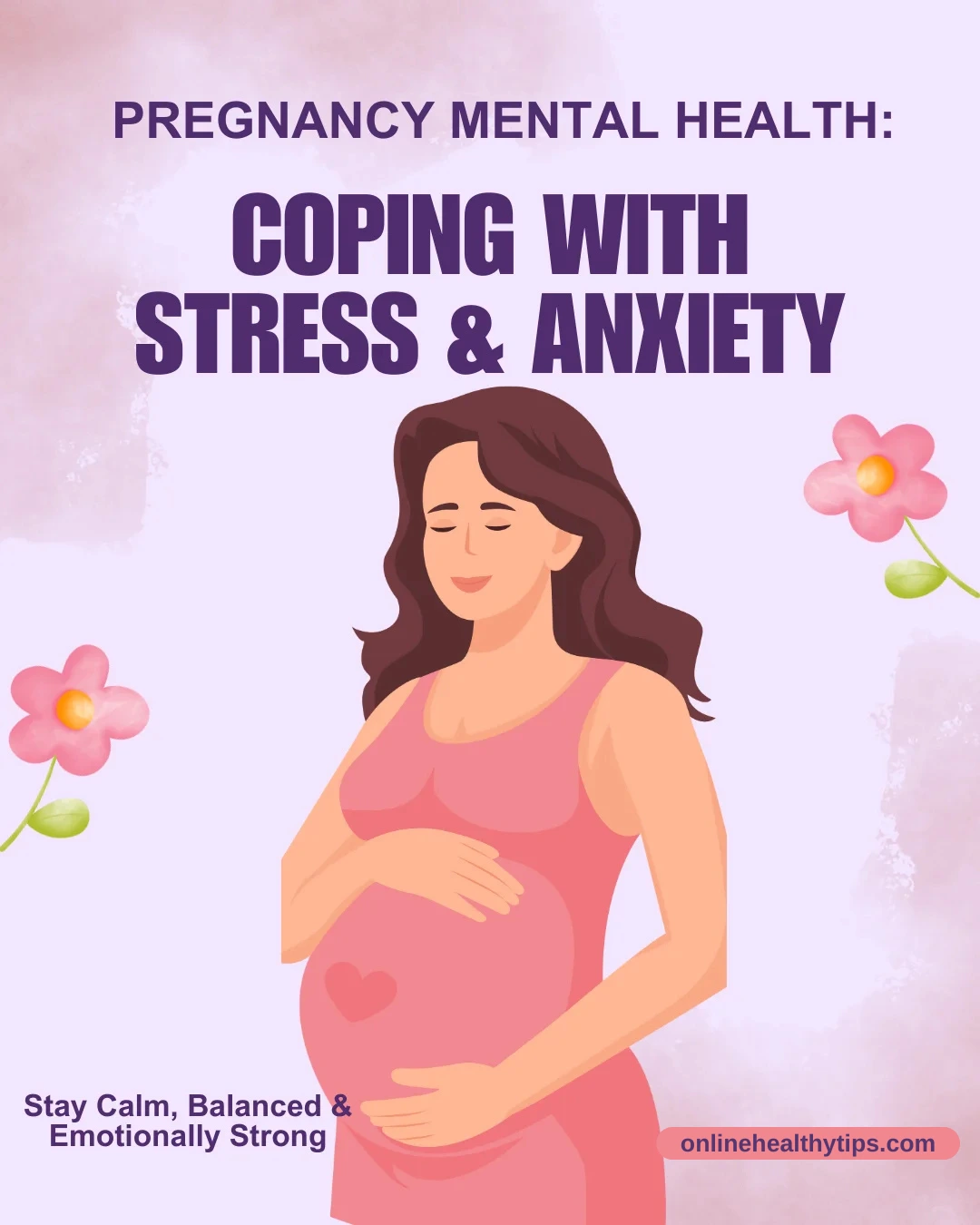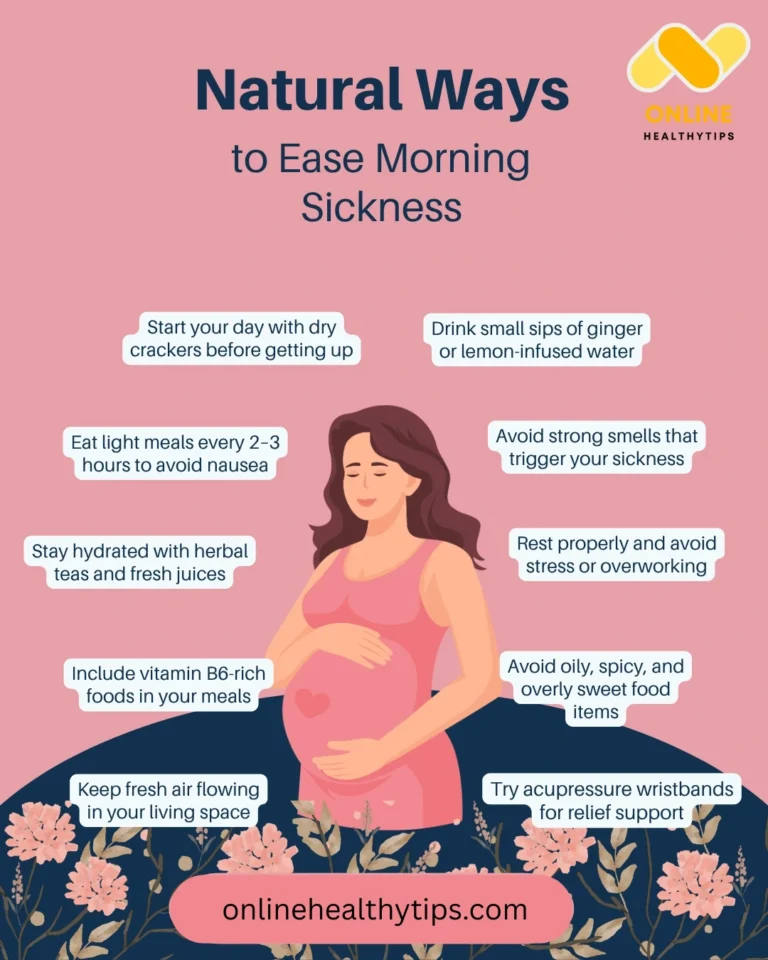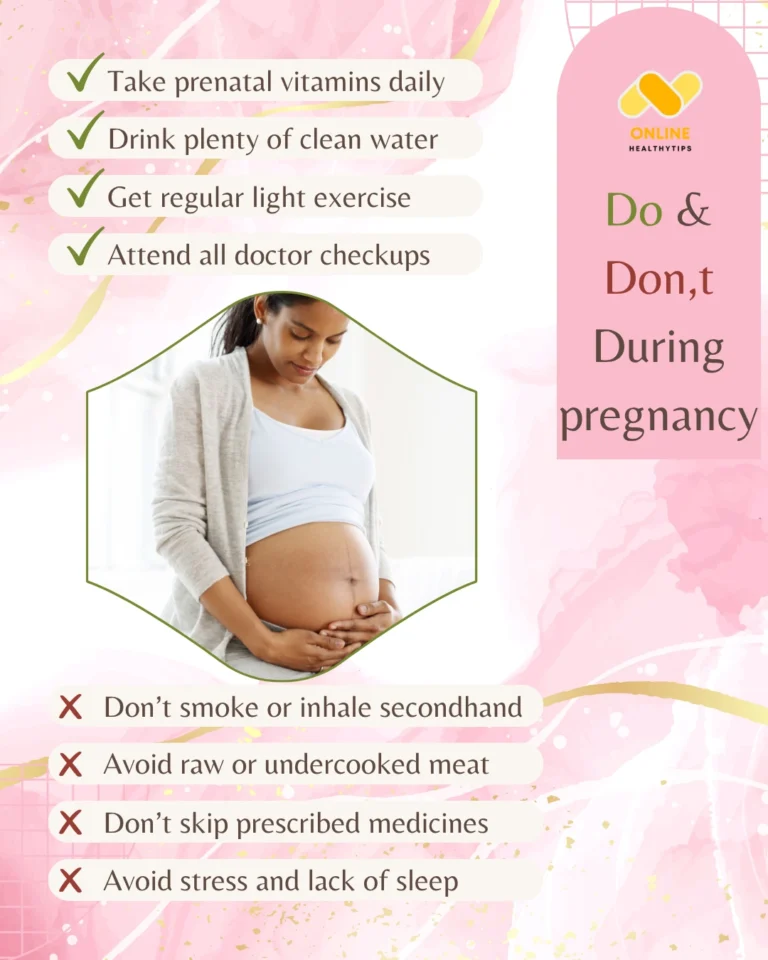

Pregnancy Mental Health: Coping with Stress & Anxiety

Pregnancy Mental Health: Coping with Stress & Anxiety
Pregnancy is a beautiful and transformative time in a woman’s life, but it can also bring about physical, emotional, and mental changes that may feel overwhelming. Stress and anxiety are common among pregnant women, and navigating these emotions is crucial for both your well-being and the health of your baby.
In this blog, we will explore the importance of mental health during pregnancy, the impact of stress and anxiety, and offer effective coping strategies to manage them.

1. Understanding Stress & Anxiety During Pregnancy
Pregnancy brings a range of hormonal and physical changes that can sometimes lead to stress and anxiety. These feelings may stem from the anticipation of becoming a parent, fear of labor, body image changes, financial pressures, or concerns about health. While mild stress is a normal part of pregnancy, excessive or chronic anxiety can impact your overall health.
The Difference Between Stress and Anxiety:
Stress is a physical and emotional response to external pressures. During pregnancy, this could include worries about baby health, work-life balance, or changes in lifestyle.
Anxiety, however, is a persistent feeling of worry or fear, often without a clear cause. Pregnancy-related anxiety could manifest as fears about delivery or concerns over the baby’s well-being.
While both stress and anxiety are common during pregnancy, managing them is essential for the well-being of both the mother and the baby.
2. Effects of Stress & Anxiety on Mother and Baby
Chronic stress and anxiety can have significant effects on both the pregnant individual and their baby:
Effects on the Mother:
Fatigue & Insomnia: Prolonged stress can affect your ability to sleep and make you feel exhausted.
Physical Symptoms: Headaches, muscle tension, and digestive problems are common stress-related physical symptoms.
Emotional Distress: Increased anxiety can lead to irritability, mood swings, and feelings of overwhelm.
Weakened Immune System: Long-term stress can weaken the immune system, making you more susceptible to illness.
Effects on the Baby:
Premature Birth: Chronic stress during pregnancy has been linked to a higher risk of premature birth.
Low Birth Weight: High levels of anxiety have been associated with babies having a lower birth weight.
Impact on Development: Babies exposed to excessive maternal stress may have developmental challenges later in life.
Health Risks: Long-term exposure to stress hormones, like cortisol, can affect fetal brain development and increase the risk of emotional or behavioral issues in children.
3. Coping Strategies for Stress & Anxiety
While stress and anxiety are common, there are effective coping mechanisms that can help you manage these emotions throughout your pregnancy. Here are some strategies to consider:
A. Relaxation Techniques
Relaxation techniques can help reduce the physical effects of stress and calm your mind. Try incorporating the following into your daily routine:
Deep Breathing: Slow, deep breaths activate the body’s relaxation response and can help reduce feelings of anxiety.
Progressive Muscle Relaxation: Tense and then relax different muscle groups in your body to release physical tension.
Visualization: Picture yourself in a calm, peaceful place. This mental escape can help reduce stress and promote relaxation.
B. Mindfulness & Meditation
Mindfulness and meditation are powerful tools for managing stress. These practices help you focus on the present moment rather than worrying about the future.
Mindfulness: Focus on your breathing, sensations, or the environment around you to stay present.
Meditation: Set aside time each day to meditate, whether it’s for 5 minutes or longer. Apps like Calm or Headspace offer guided meditations designed for pregnant women.
C. Exercise & Physical Activity
While intense physical activity may not always be feasible during pregnancy, gentle exercises like walking, swimming, or prenatal yoga can help improve mood, reduce stress, and boost energy levels.
Prenatal Yoga: Prenatal yoga specifically focuses on stretches and poses that are safe for pregnancy, reducing muscle tension and promoting relaxation.
Walking: A simple walk around your neighborhood can have calming effects and help release pent-up tension.
Swimming: The buoyancy of the water reduces stress on the body and promotes a sense of weightlessness and calm.
D. Support Networks
During pregnancy, it’s important to build a strong support network of friends, family, and professionals. Having people you can talk to and rely on can make a huge difference in managing stress and anxiety.
Talk to Your Partner: Share your thoughts and concerns with your partner. Feeling supported by a loved one can reduce feelings of isolation and anxiety.
Join a Pregnancy Support Group: Online or in-person pregnancy support groups can provide a space to share experiences and receive advice from others who are going through similar experiences.
E. Healthy Lifestyle Choices
Maintaining a balanced diet and regular sleep schedule is vital for managing stress and improving mental health.
Eat Nutritious Foods: A well-balanced diet rich in vitamins, minerals, and omega-3 fatty acids can improve brain function and mood. Include fruits, vegetables, whole grains, and lean proteins in your diet.
Sleep Well: Prioritize getting enough sleep each night. If insomnia is an issue, try relaxing activities before bed, like reading or listening to calming music.
F. Professional Help
If stress or anxiety becomes overwhelming, seeking professional help is important. A therapist or counselor specializing in pregnancy-related mental health can offer support.
Therapy: Cognitive Behavioral Therapy (CBT) is often used to help manage anxiety. CBT helps you identify and change negative thought patterns that contribute to stress.
Medication: In some cases, a healthcare provider may recommend medication to help manage anxiety, but only if the benefits outweigh the risks during pregnancy.
4. When to Seek Professional Help
While it’s normal to experience some anxiety during pregnancy, there are certain signs that may indicate it’s time to seek help:
Persistent Anxiety: If your anxiety lasts for weeks and prevents you from carrying out your daily activities, it may require professional intervention.
Panic Attacks: If you experience frequent panic attacks, characterized by rapid heart rate, sweating, and shortness of breath, consult a doctor.
Depression Symptoms: Symptoms of depression, such as sadness, hopelessness, and loss of interest in activities, should be addressed with professional care.
5. Expert Tips for Maintaining Mental Health During Pregnancy
Prioritize Self-Care: Take time each day for yourself. Whether it’s a warm bath, reading a book, or simply sitting in quiet, self-care is essential for mental health.
Practice Gratitude: Focus on the positives of pregnancy by keeping a gratitude journal. Writing down things you’re thankful for can improve mood and reduce anxiety.
Stay Connected: Regular communication with friends, family, or online communities can reduce feelings of isolation and provide emotional support.
Accept Help: Don’t be afraid to ask for or accept help from others, whether it’s with household chores or running errands.
6. FAQs:
Q1: How common is anxiety during pregnancy?
Anxiety is common during pregnancy, with around 10-20% of pregnant individuals experiencing significant anxiety.
Q2: Can anxiety during pregnancy affect the baby?
Yes, excessive anxiety can increase the risk of premature birth, low birth weight, and developmental delays.
Q3: Is it normal to worry a lot during pregnancy?
Worrying occasionally is normal, but if it interferes with your daily life, it may be a sign of anxiety that requires attention.
Conclusion
Taking care of your mental health during pregnancy is just as important as caring for your physical health. By incorporating relaxation techniques, mindfulness, exercise, and seeking support, you can manage stress and anxiety effectively. If your symptoms persist or worsen, don’t hesitate to reach out to a professional for guidance. Pregnancy is a unique journey, and prioritizing your mental well-being will help you navigate it with confidence and peace.





